Park It
Simplifying the Parking Experience
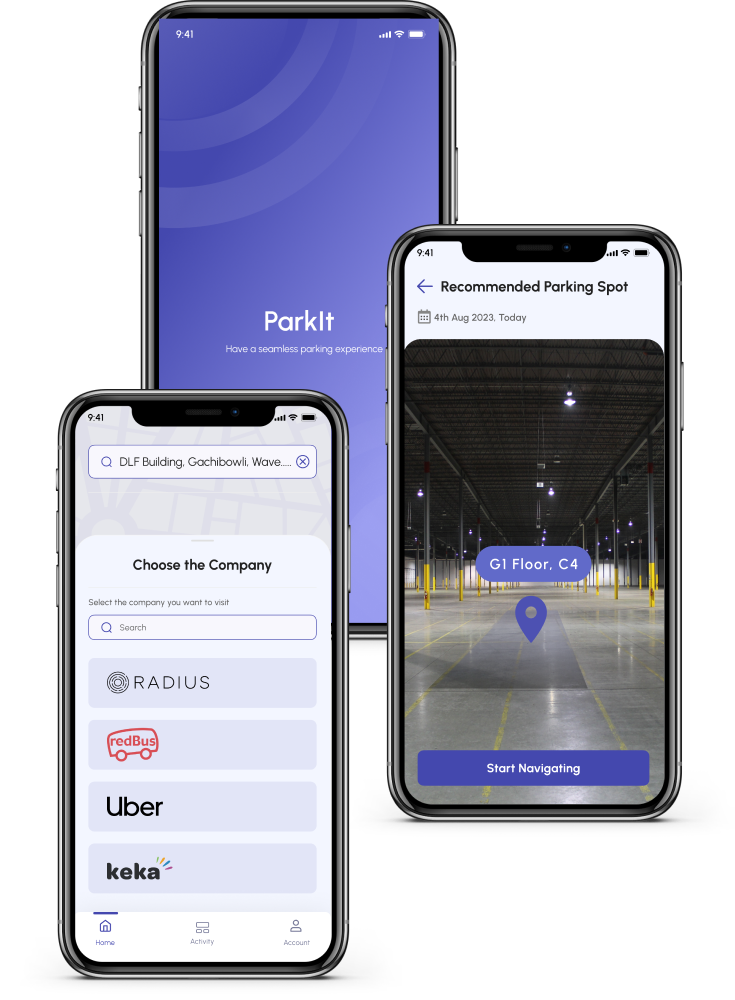
Project Overview
ParkIt is a smart application designed to address the parking challenges faced by new employees and visitors in co-working office spaces. By streamlining the process, providing real-time parking availability, and offering guided navigation, ParkIt reduces frustration and ensures a hassle-free parking experience.
ROLE/TEAM
Role - Lead UX Designer
Team - Collaborative effort involving designers, developers, and parking management system stakeholders
Responsibilities: Conducting user research, synthesizing insights, creating workflows, wireframes, prototypes, and high-fidelity designs.
TOOLS
Figma, User Journey Mapping, Image Processing Technology
CLIENT/DATE/DURATION
Internal Project for Co-Working Space Employees
The Challenge
Problem Statement:
Parking in co-working office spaces is often inefficient, especially for new employees like Ram, who spends up to 15 minutes daily searching for a suitable parking spot. The lack of clear signage and real-time availability data results in confusion, unintentional violations, and penalties, causing stress and reducing productivity.
Key Challenges Identified:
1. Lack of Clear Demarcation: Visitors and new employees struggle to differentiate between reserved and visitor parking spots, leading to violations.
2. Insufficient Parking Availability: Limited spaces result in longer search times and increased frustration
3. Inefficient Management: Absence of real-time information on available spots wastes time and resources.
4. Unclear Parking Assignments: New employees like Ram are unaware of their future assigned parking spots, creating additional confusion.
5. No Reporting Mechanism: Lack of feedback channels prevents users from addressing issues such as unauthorized parking.
Impact on Users and Business:
Improving the parking experience for employees and visitors is essential for enhancing their productivity, reducing stress, and promoting a positive workplace environment.
Research & Analysis
Research Objectives
1. Understand the daily parking challenges faced by new employees and visitors.
2. Identify key user needs and expectations for a seamless parking experience.
3. Explore technology solutions to provide real-time parking data and guidance.
Methods:
• Interviews: Conducted interviews with new employees and parking management staff to identify pain points and expectations.
• Observation: Observed user behavior in the parking facility to understand navigation patterns and challenges.
• Contextual Inquiry: Examined parking layouts, signage, and entry/exit systems to identify inefficiencies.
Insights:
1. Navigation Issues: New employees face difficulties locating visitor spots due to poor signage and unclear layouts.
2. Time Wastage: Employees spend significant time searching for spots, reducing their punctuality and focus.
3. Stress Factors: Fear of penalties and unintentional violations creates anxiety among users.
Goals
Goal 1:
Develop a mobile application that provides real-time parking availability and ensures hassle-free navigation to suitable parking spots.
Goal 2:
Create a system to clearly demarcate visitor and reserved parking spaces to reduce unintentional violations
Goal 3:
Enable feedback and reporting mechanisms for users to address parking-related issues effectively.
.
Concept Development
Solution Features:
1. Real-Time Availability: Image processing monitors parking occupancy and updates spot availability dynamically.
2. Navigation Assistance: GPS-based guidance helps users locate the nearest available spot efficiently.
3. Violation Alerts: The app warns users attempting to park in restricted areas or outside assigned spots.
4. Feedback Mechanism: Users can report unauthorized parking or other issues directly through the app.
Value Proposition:
A seamless parking experience that saves time, reduces stress, and promotes efficiency for both new employees and visitors
User Flow
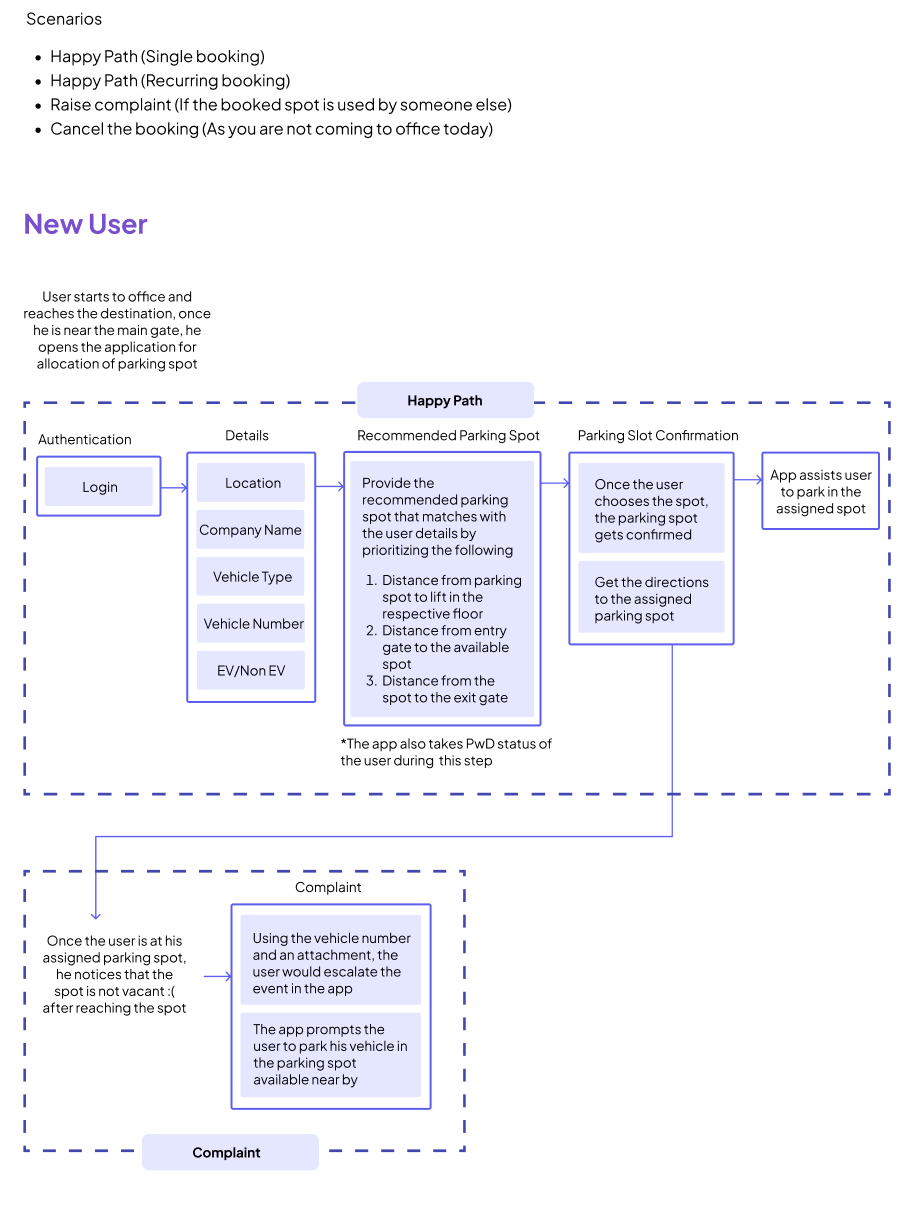
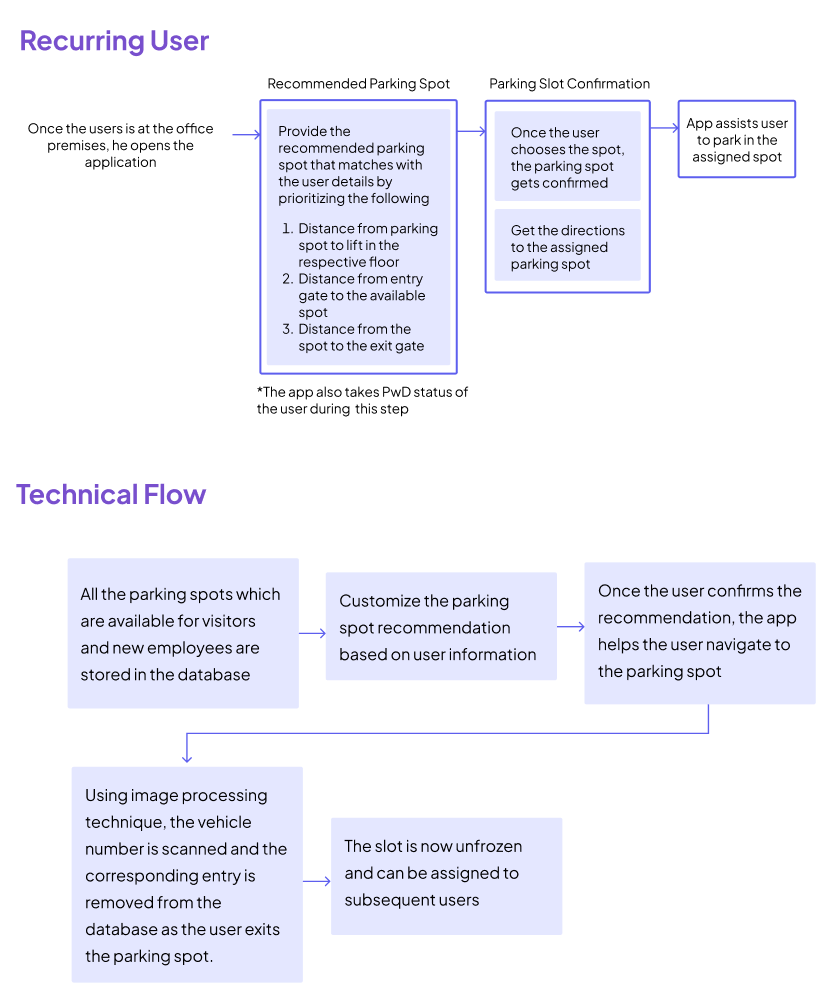
Low Fedilty Wireframes
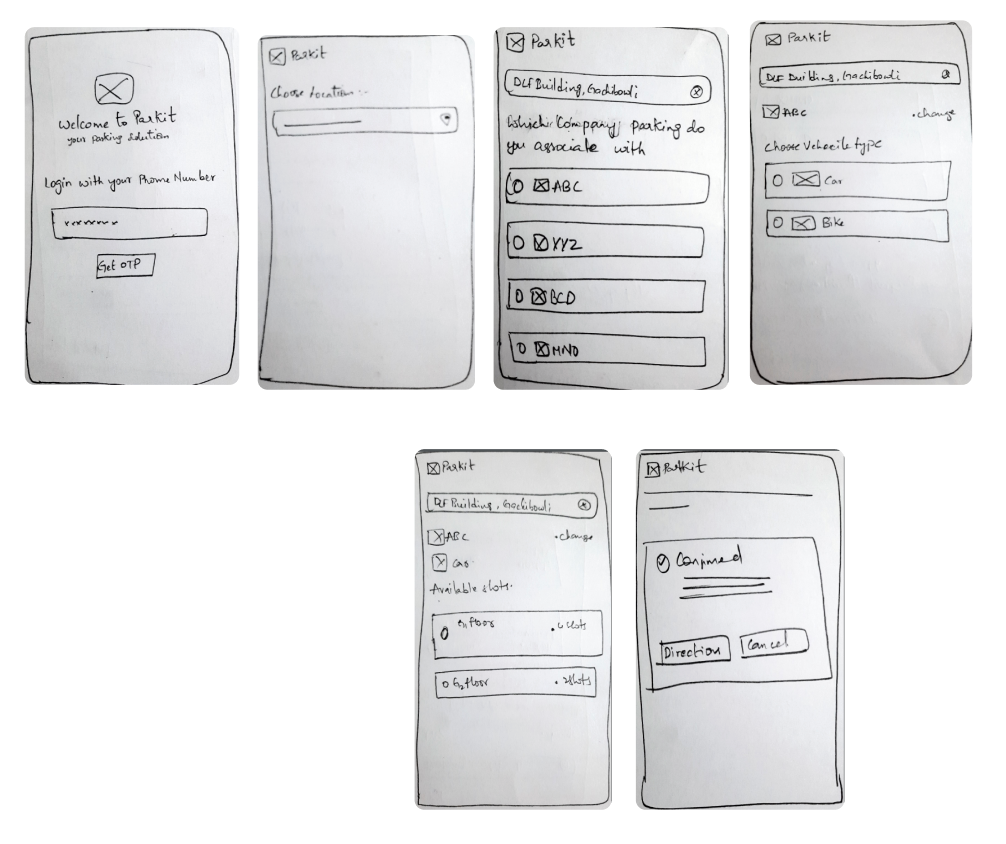
Solution Features
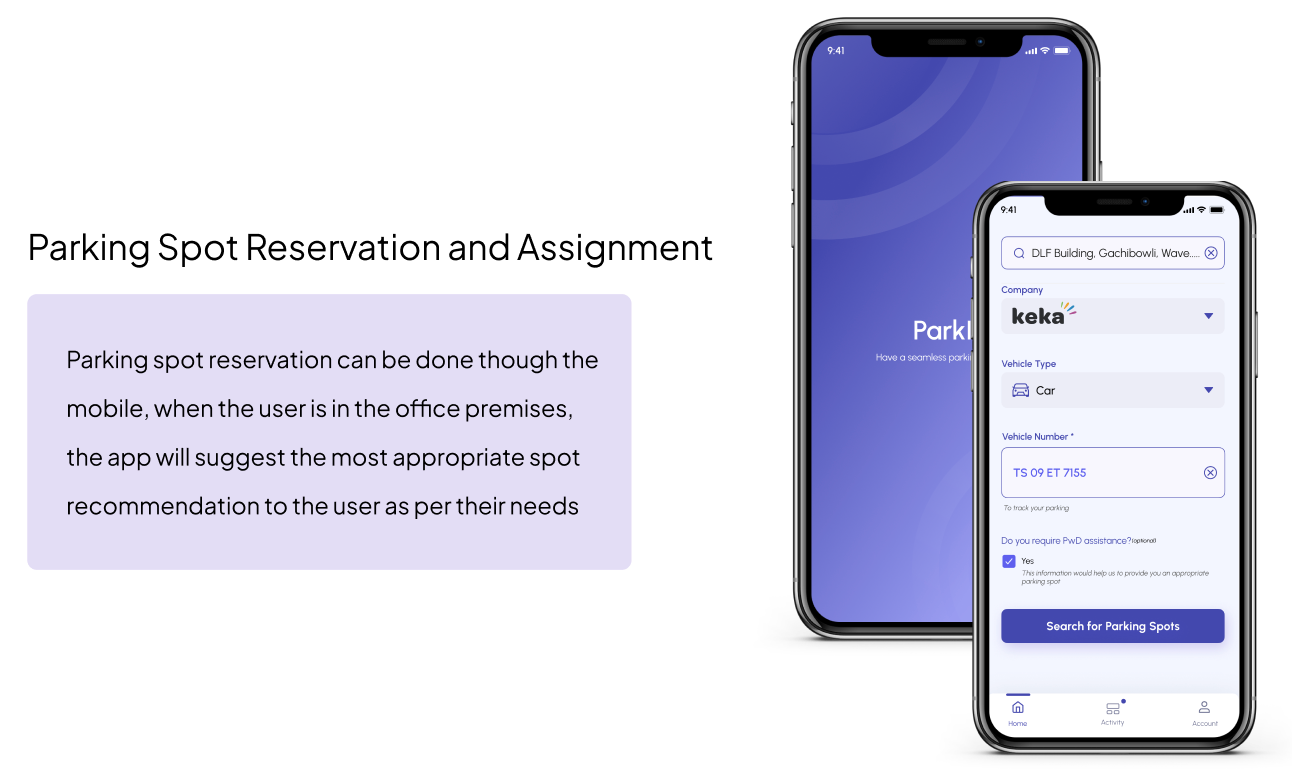
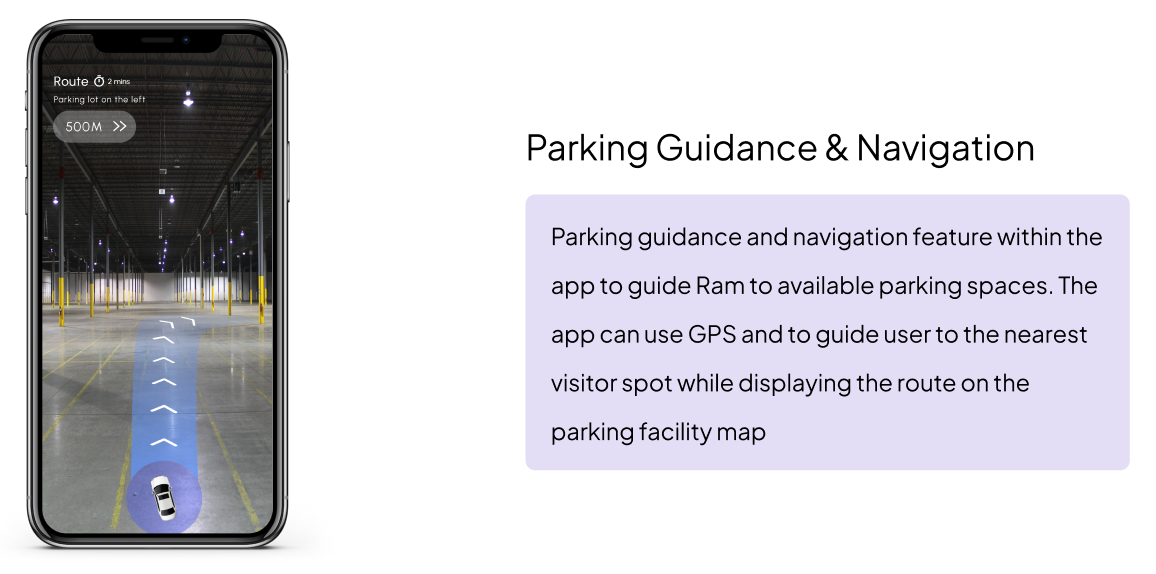
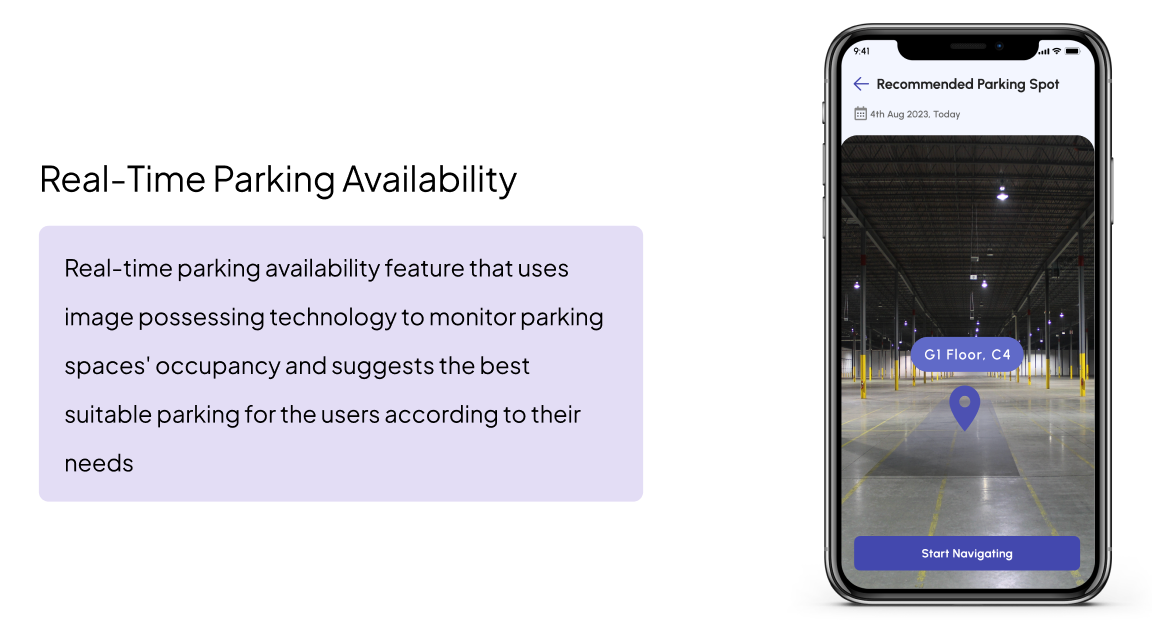
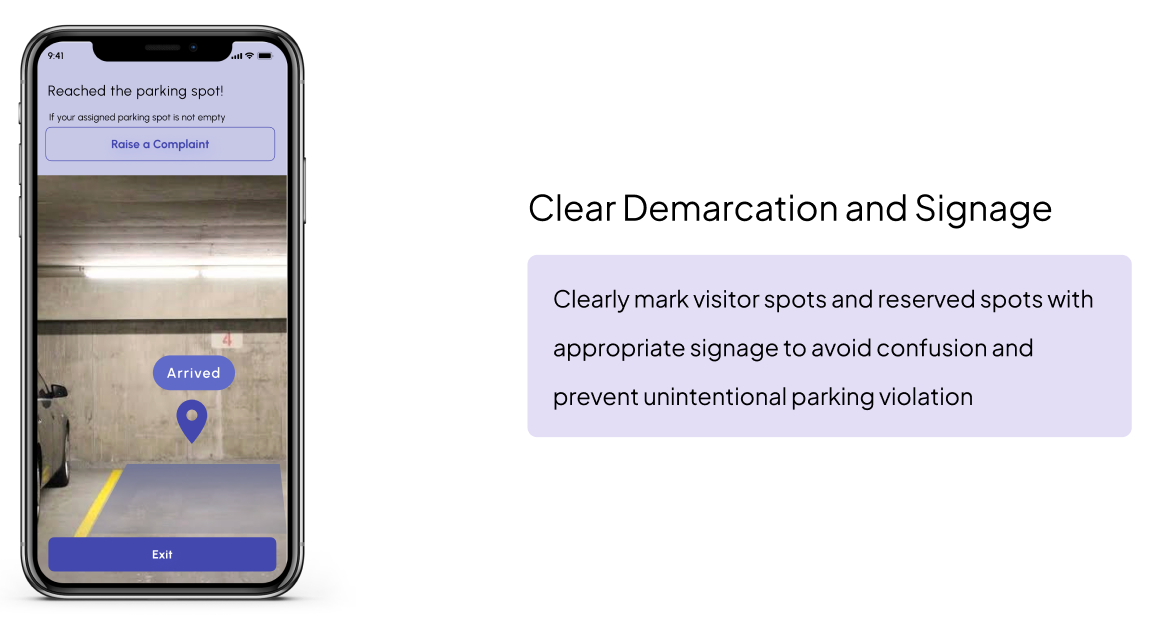
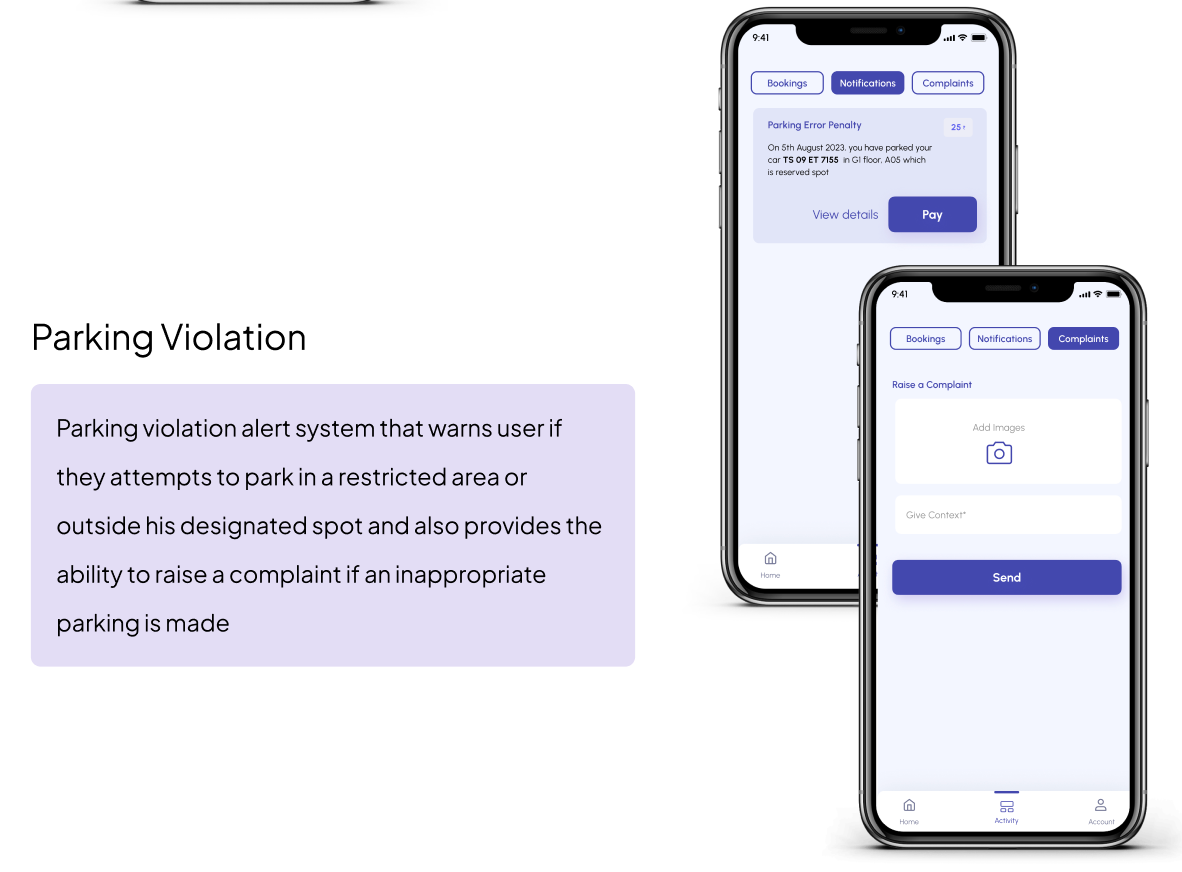
Screen Flow
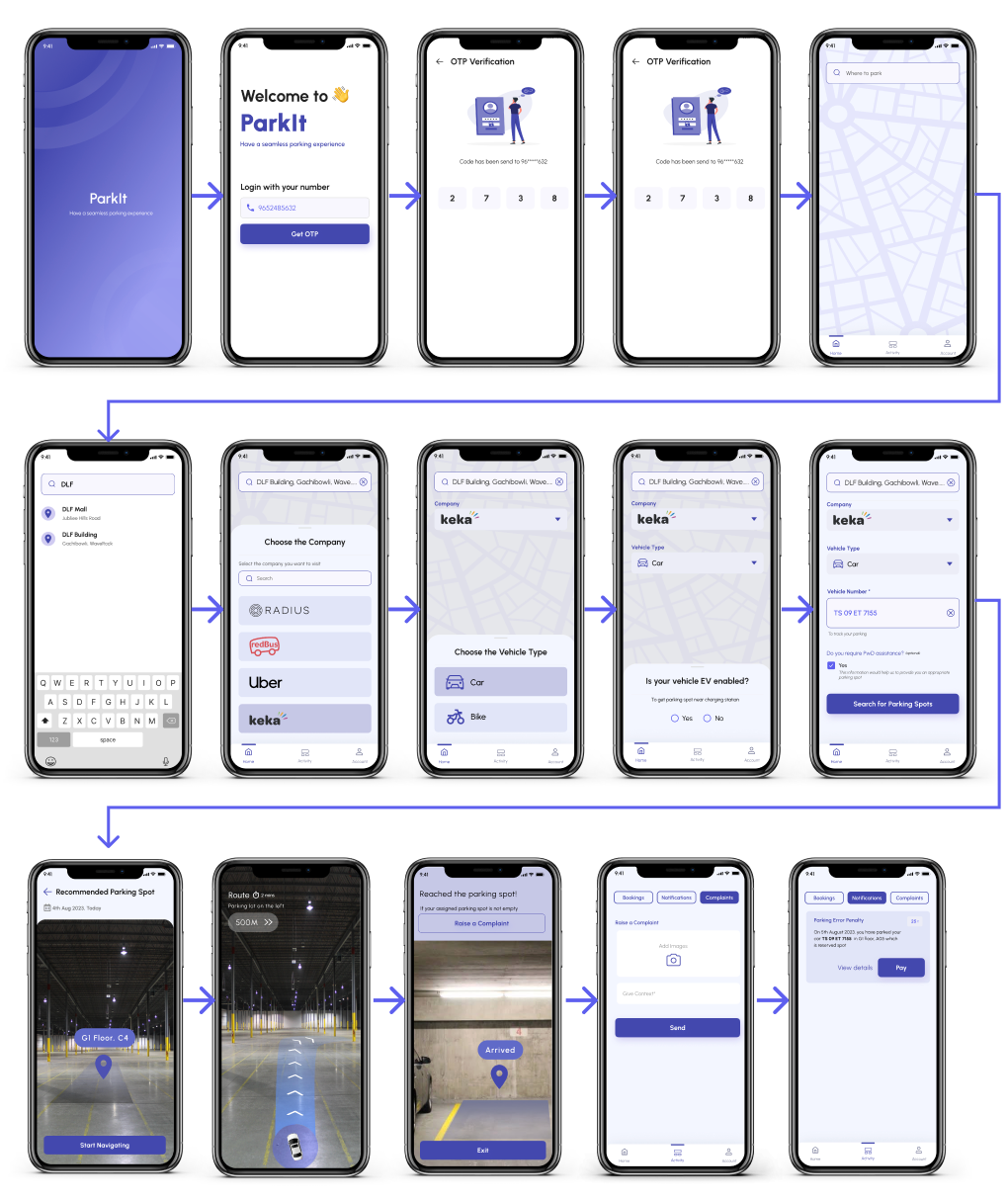
Testing & Feedback
Usability Testing:
Tested with a group of 10 users, including new employees and visitors, to evaluate functionality and ease of use.
Key Findings:
1. Positive Reception: Users appreciated the app’s ability to suggest parking spots based on their preferences.
2. Improved Navigation: Navigation assistance reduced time spent searching for parking spots by 40%.
3. Feedback Implementation: The reporting feature made users feel more empowered to address parking issues.
Iterations Based on Feedback:
• Improved parking spot visuals to differentiate between reserved and visitor spaces clearly.
• Enhanced navigation prompts for better clarity in multi-level parking facilities.
Results & Impact
Outcome Metrics:
• 40% reduction in parking search times.
• 30% fewer parking violations reported.
• Significant improvement in user satisfaction with parking facilities.
User Testimonials:
“The app has completely transformed my daily routine—I no longer worry about finding parking!” – Ram, New Employee
Challenges & Learnings
Challenges:
1. Integration of real-time availability required significant backend support and testing.
2. Some users initially struggled to adapt to app navigation features.
Results & Impact
Outcome Metrics:
• 40% reduction in parking search times.
• 30% fewer parking violations reported.
• Significant improvement in user satisfaction with parking facilities.
User Testimonials:
“The app has completely transformed my daily routine—I no longer worry about finding parking!” – Ram, New Employee
Challenges & Learnings
Challenges:
1. Integration of real-time availability required significant backend support and testing.
2. Some users initially struggled to adapt to app navigation features.